afterLoad (456.41KB) (2.63ms)
afterInitialise (1.28MB) (31.13ms)
afterRoute (869.87KB) (12.06ms)
beforeRenderComponent com_tags (20.38KB) (377μs)
afterRenderComponent com_tags (1.48MB) (65.46ms)
afterDispatch (27.72KB) (3.21ms)
beforeRenderRawModule mod_articles_category (READ MORE...) (388.12KB) (8.63ms)
Before Access::preloadComponents (all components) (56.7KB) (2.69ms)
After Access::preloadComponents (all components) (103.05KB) (5.7ms)
Before Access::getAssetRules (id:8 name:com_content) (840B) (25μs)
After Access::getAssetRules (id:8 name:com_content) (7.05KB) (56μs)
afterRenderRawModule mod_articles_category (READ MORE...) (5.08KB) (116ms)
beforeRenderRawModule mod_tags_popular (Search) (4.81KB) (36μs)
afterRenderRawModule mod_tags_popular (Search) (3.12KB) (54.66ms)
beforeRenderRawModule mod_custom (Remember to download Heart Healthy Seniors) (816B) (38μs)
afterRenderRawModule mod_custom (Remember to download Heart Healthy Seniors) (4.86KB) (305μs)
beforeRenderRawModule mod_custom (Get additionel and more detailed knowledge ) (752B) (15μs)
afterRenderRawModule mod_custom (Get additionel and more detailed knowledge ) (1.67KB) (29μs)
beforeRenderRawModule mod_custom (BOOST YOUR IMMUNE DEFENSE) (608B) (10μs)
afterRenderRawModule mod_custom (BOOST YOUR IMMUNE DEFENSE) (928B) (23μs)
beforeRenderRawModule mod_custom (Are you taking supplements) (736B) (10μs)
afterRenderRawModule mod_custom (Are you taking supplements) (1.03KB) (18μs)
beforeRenderRawModule mod_custom (Antiaging) (720B) (9μs)
afterRenderRawModule mod_custom (Antiaging) (1.02KB) (1.02ms)
beforeRenderRawModule mod_custom (Exercise) (720B) (16μs)
afterRenderRawModule mod_custom (Exercise) (1.02KB) (28μs)
beforeRenderRawModule mod_custom (Check this before you buy a Q10 product) (752B) (9μs)
afterRenderRawModule mod_custom (Check this before you buy a Q10 product) (944B) (21μs)
beforeRenderRawModule mod_custom (Chronic fatigue tied Alan to his bed but Q10 capsules saved him:) (245.53KB) (6.67ms)
afterRenderRawModule mod_custom (Chronic fatigue tied Alan to his bed but Q10 capsules saved him:) (960B) (56μs)
beforeRenderModule mod_custom (Chronic fatigue tied Alan to his bed but Q10 capsules saved him:) (768B) (5μs)
afterRenderModule mod_custom (Chronic fatigue tied Alan to his bed but Q10 capsules saved him:) (1.3KB) (73μs)
beforeRenderRawModule mod_custom (Cholesterol-lowering without side effects:) (368B) (13μs)
afterRenderRawModule mod_custom (Cholesterol-lowering without side effects:) (2.19KB) (25μs)
beforeRenderModule mod_custom (Cholesterol-lowering without side effects:) (752B) (2μs)
afterRenderModule mod_custom (Cholesterol-lowering without side effects:) (1.28KB) (31μs)
beforeRenderModule mod_articles_category (READ MORE...) (21.32KB) (1.45ms)
afterRenderModule mod_articles_category (READ MORE...) (1.25KB) (49μs)
beforeRenderModule mod_tags_popular (Search) (5.17KB) (14μs)
afterRenderModule mod_tags_popular (Search) (1.27KB) (23μs)
beforeRenderModule mod_custom (Remember to download Heart Healthy Seniors) (1.17KB) (12μs)
afterRenderModule mod_custom (Remember to download Heart Healthy Seniors) (1.3KB) (22μs)
beforeRenderModule mod_custom (Get additionel and more detailed knowledge ) (368B) (9μs)
afterRenderModule mod_custom (Get additionel and more detailed knowledge ) (1.3KB) (21μs)
beforeRenderModule mod_custom (BOOST YOUR IMMUNE DEFENSE) (224B) (9μs)
afterRenderModule mod_custom (BOOST YOUR IMMUNE DEFENSE) (1.28KB) (20μs)
beforeRenderModule mod_custom (Are you taking supplements) (352B) (8μs)
afterRenderModule mod_custom (Are you taking supplements) (1.28KB) (20μs)
beforeRenderModule mod_custom (Antiaging) (336B) (8μs)
afterRenderModule mod_custom (Antiaging) (1.27KB) (19μs)
beforeRenderModule mod_custom (Exercise) (336B) (9μs)
afterRenderModule mod_custom (Exercise) (1.25KB) (19μs)
beforeRenderModule mod_custom (Check this before you buy a Q10 product) (352B) (9μs)
afterRenderModule mod_custom (Check this before you buy a Q10 product) (1.28KB) (20μs)
beforeRenderRawModule mod_menu (Main menu-US) (20.94KB) (1.23ms)
afterRenderRawModule mod_menu (Main menu-US) (152.66KB) (2.7ms)
beforeRenderModule mod_menu (Main menu-US) (720B) (6μs)
afterRenderModule mod_menu (Main menu-US) (4.36KB) (69μs)
beforeRenderRawModule mod_languages (Sprogskift) (3.44KB) (23μs)
afterRenderRawModule mod_languages (Sprogskift) (26.8KB) (5.56ms)
beforeRenderModule mod_languages (Sprogskift) (720B) (9μs)
afterRenderModule mod_languages (Sprogskift) (5.31KB) (27μs)
beforeRenderRawModule mod_finder () (6.34KB) (15μs)
afterRenderRawModule mod_finder () (214.16KB) (4.48ms)
beforeRenderModule mod_finder () (704B) (7μs)
afterRenderModule mod_finder () (5.79KB) (41μs)
beforeRenderRawModule mod_custom () (6.62KB) (174μs)
afterRenderRawModule mod_custom () (22.66KB) (2.7ms)
beforeRenderModule mod_custom () (704B) (8μs)
afterRenderModule mod_custom () (1.23KB) (60μs)
beforeRenderRawModule mod_menu (Main menu-US) (5.07KB) (129μs)
afterRenderRawModule mod_menu (Main menu-US) (5.8KB) (718μs)
beforeRenderModule mod_menu (Main menu-US) (720B) (4μs)
afterRenderModule mod_menu (Main menu-US) (1.25KB) (47μs)
beforeRenderRawModule mod_languages (Sprogskift Mobil) (912B) (17μs)
afterRenderRawModule mod_languages (Sprogskift Mobil) (3.89KB) (2.77ms)
beforeRenderModule mod_languages (Sprogskift Mobil) (720B) (8μs)
afterRenderModule mod_languages (Sprogskift Mobil) (1.27KB) (39μs)
beforeRenderRawModule mod_finder () (2.3KB) (14μs)
afterRenderRawModule mod_finder () (6.29KB) (1.91ms)
beforeRenderModule mod_finder () (704B) (6μs)
afterRenderModule mod_finder () (1.23KB) (59μs)
beforeRenderRawModule mod_custom () (8.66KB) (199μs)
afterRenderRawModule mod_custom () (904B) (166μs)
beforeRenderModule mod_custom () (704B) (3μs)
afterRenderModule mod_custom () (2.43KB) (26μs)
beforeRenderRawModule mod_custom () (688B) (1.12ms)
afterRenderRawModule mod_custom () (896B) (157μs)
beforeRenderModule mod_custom () (704B) (3μs)
afterRenderModule mod_custom () (2.71KB) (29μs)
afterRender (277.62KB) (8.67ms)
| 1 x afterRenderRawModule mod_articles_category (READ MORE...) (5.08KB) (33.21%) | 115.66ms |
| 1 x afterRenderComponent com_tags (1.48MB) (18.8%) | 65.46ms |
| 1 x afterRenderRawModule mod_tags_popular (Search) (3.12KB) (15.7%) | 54.66ms |
| 1 x afterInitialise (1.28MB) (8.94%) | 31.13ms |
| 1 x afterRoute (869.87KB) (3.46%) | 12.06ms |
| 1 x afterRender (277.62KB) (2.49%) | 8.67ms |
| 1 x beforeRenderRawModule mod_articles_category (READ MORE...) (388.12KB) (2.48%) | 8.63ms |
| 1 x beforeRenderRawModule mod_custom (Chronic fatigue tied Alan to his bed but Q10 capsules saved him:) (245.53KB) (1.92%) | 6.67ms |
| 1 x After Access::preloadComponents (all components) (103.05KB) (1.64%) | 5.70ms |
| 1 x afterRenderRawModule mod_languages (Sprogskift) (26.8KB) (1.6%) | 5.56ms |
| 1 x afterRenderRawModule mod_finder () (214.16KB) (1.29%) | 4.48ms |
| 1 x afterDispatch (27.72KB) (0.92%) | 3.21ms |
| 1 x afterRenderRawModule mod_languages (Sprogskift Mobil) (3.89KB) (0.8%) | 2.77ms |
| 1 x afterRenderRawModule mod_custom () (22.66KB) (0.78%) | 2.70ms |
| 1 x afterRenderRawModule mod_menu (Main menu-US) (152.66KB) (0.77%) | 2.70ms |
| 1 x Before Access::preloadComponents (all components) (56.7KB) (0.77%) | 2.69ms |
| 1 x afterLoad (456.41KB) (0.76%) | 2.63ms |
| 1 x afterRenderRawModule mod_finder () (6.29KB) (0.55%) | 1.91ms |
| 1 x beforeRenderModule mod_articles_category (READ MORE...) (21.32KB) (0.42%) | 1.45ms |
| 1 x beforeRenderRawModule mod_menu (Main menu-US) (20.94KB) (0.35%) | 1.23ms |
| 1 x beforeRenderRawModule mod_custom () (688B) (0.32%) | 1.12ms |
| 1 x afterRenderRawModule mod_custom (Antiaging) (1.02KB) (0.29%) | 1.02ms |
| 1 x afterRenderRawModule mod_menu (Main menu-US) (5.8KB) (0.21%) | 718μs |
| 1 x beforeRenderComponent com_tags (20.38KB) (0.11%) | 377μs |
| 1 x afterRenderRawModule mod_custom (Remember to download Heart Healthy Seniors) (4.86KB) (0.09%) | 305μs |
| 1 x beforeRenderRawModule mod_custom () (8.66KB) (0.06%) | 199μs |
| 1 x beforeRenderRawModule mod_custom () (6.62KB) (0.05%) | 174μs |
| 1 x afterRenderRawModule mod_custom () (904B) (0.05%) | 166μs |
| 1 x afterRenderRawModule mod_custom () (896B) (0.05%) | 157μs |
| 1 x beforeRenderRawModule mod_menu (Main menu-US) (5.07KB) (0.04%) | 129μs |
| 1 x afterRenderModule mod_custom (Chronic fatigue tied Alan to his bed but Q10 capsules saved him:) (1.3KB) (0.02%) | 73μs |
| 1 x afterRenderModule mod_menu (Main menu-US) (4.36KB) (0.02%) | 69μs |
| 1 x afterRenderModule mod_custom () (1.23KB) (0.02%) | 60μs |
| 1 x afterRenderModule mod_finder () (1.23KB) (0.02%) | 59μs |
| 1 x After Access::getAssetRules (id:8 name:com_content) (7.05KB) (0.02%) | 56μs |
| 1 x afterRenderRawModule mod_custom (Chronic fatigue tied Alan to his bed but Q10 capsules saved him:) (960B) (0.02%) | 56μs |
| 1 x afterRenderModule mod_articles_category (READ MORE...) (1.25KB) (0.01%) | 49μs |
| 1 x afterRenderModule mod_menu (Main menu-US) (1.25KB) (0.01%) | 47μs |
| 1 x afterRenderModule mod_finder () (5.79KB) (0.01%) | 41μs |
| 1 x afterRenderModule mod_languages (Sprogskift Mobil) (1.27KB) (0.01%) | 39μs |
| 1 x beforeRenderRawModule mod_custom (Remember to download Heart Healthy Seniors) (816B) (0.01%) | 38μs |
| 1 x beforeRenderRawModule mod_tags_popular (Search) (4.81KB) (0.01%) | 36μs |
| 1 x afterRenderModule mod_custom (Cholesterol-lowering without side effects:) (1.28KB) (0.01%) | 31μs |
| 1 x afterRenderRawModule mod_custom (Get additionel and more detailed knowledge ) (1.67KB) (0.01%) | 29μs |
| 1 x afterRenderModule mod_custom () (2.71KB) (0.01%) | 29μs |
| 1 x afterRenderRawModule mod_custom (Exercise) (1.02KB) (0.01%) | 28μs |
| 1 x afterRenderModule mod_languages (Sprogskift) (5.31KB) (0.01%) | 27μs |
| 1 x afterRenderModule mod_custom () (2.43KB) (0.01%) | 26μs |
| 1 x afterRenderRawModule mod_custom (Cholesterol-lowering without side effects:) (2.19KB) (0.01%) | 25μs |
| 1 x Before Access::getAssetRules (id:8 name:com_content) (840B) (0.01%) | 25μs |
| 1 x afterRenderRawModule mod_custom (BOOST YOUR IMMUNE DEFENSE) (928B) (0.01%) | 23μs |
| 1 x afterRenderModule mod_tags_popular (Search) (1.27KB) (0.01%) | 23μs |
| 1 x beforeRenderRawModule mod_languages (Sprogskift) (3.44KB) (0.01%) | 23μs |
| 1 x afterRenderModule mod_custom (Remember to download Heart Healthy Seniors) (1.3KB) (0.01%) | 22μs |
| 1 x afterRenderRawModule mod_custom (Check this before you buy a Q10 product) (944B) (0.01%) | 21μs |
| 1 x afterRenderModule mod_custom (Get additionel and more detailed knowledge ) (1.3KB) (0.01%) | 21μs |
| 1 x afterRenderModule mod_custom (BOOST YOUR IMMUNE DEFENSE) (1.28KB) (0.01%) | 20μs |
| 1 x afterRenderModule mod_custom (Are you taking supplements) (1.28KB) (0.01%) | 20μs |
| 1 x afterRenderModule mod_custom (Check this before you buy a Q10 product) (1.28KB) (0.01%) | 20μs |
| 1 x afterRenderModule mod_custom (Antiaging) (1.27KB) (0.01%) | 19μs |
| 1 x afterRenderModule mod_custom (Exercise) (1.25KB) (0.01%) | 19μs |
| 1 x afterRenderRawModule mod_custom (Are you taking supplements) (1.03KB) (0.01%) | 18μs |
| 1 x beforeRenderRawModule mod_languages (Sprogskift Mobil) (912B) (0%) | 17μs |
| 1 x beforeRenderRawModule mod_custom (Exercise) (720B) (0%) | 16μs |
| 1 x beforeRenderRawModule mod_custom (Get additionel and more detailed knowledge ) (752B) (0%) | 15μs |
| 1 x beforeRenderRawModule mod_finder () (6.34KB) (0%) | 15μs |
| 1 x beforeRenderRawModule mod_finder () (2.3KB) (0%) | 14μs |
| 1 x beforeRenderModule mod_tags_popular (Search) (5.17KB) (0%) | 14μs |
| 3 x beforeRenderModule mod_custom () (704B) (0%) | 14μs |
| 1 x beforeRenderRawModule mod_custom (Cholesterol-lowering without side effects:) (368B) (0%) | 13μs |
| 2 x beforeRenderModule mod_finder () (704B) (0%) | 13μs |
| 1 x beforeRenderModule mod_custom (Remember to download Heart Healthy Seniors) (1.17KB) (0%) | 12μs |
| 1 x beforeRenderRawModule mod_custom (BOOST YOUR IMMUNE DEFENSE) (608B) (0%) | 10μs |
| 2 x beforeRenderModule mod_menu (Main menu-US) (720B) (0%) | 10μs |
| 1 x beforeRenderRawModule mod_custom (Are you taking supplements) (736B) (0%) | 10μs |
| 1 x beforeRenderRawModule mod_custom (Antiaging) (720B) (0%) | 9μs |
| 1 x beforeRenderModule mod_custom (Get additionel and more detailed knowledge ) (368B) (0%) | 9μs |
| 1 x beforeRenderModule mod_custom (BOOST YOUR IMMUNE DEFENSE) (224B) (0%) | 9μs |
| 1 x beforeRenderModule mod_custom (Check this before you buy a Q10 product) (352B) (0%) | 9μs |
| 1 x beforeRenderModule mod_languages (Sprogskift) (720B) (0%) | 9μs |
| 1 x beforeRenderRawModule mod_custom (Check this before you buy a Q10 product) (752B) (0%) | 9μs |
| 1 x beforeRenderModule mod_custom (Exercise) (336B) (0%) | 9μs |
| 1 x beforeRenderModule mod_custom (Antiaging) (336B) (0%) | 8μs |
| 1 x beforeRenderModule mod_languages (Sprogskift Mobil) (720B) (0%) | 8μs |
| 1 x beforeRenderModule mod_custom (Are you taking supplements) (352B) (0%) | 8μs |
| 1 x beforeRenderModule mod_custom (Chronic fatigue tied Alan to his bed but Q10 capsules saved him:) (768B) (0%) | 5μs |
| 1 x beforeRenderModule mod_custom (Cholesterol-lowering without side effects:) (752B) (0%) | 2μs |
 tact with cholesterol lowering drugs can cause potentially harmful side effects such as exercise intolerance and muscle pain, scientists report.
tact with cholesterol lowering drugs can cause potentially harmful side effects such as exercise intolerance and muscle pain, scientists report.







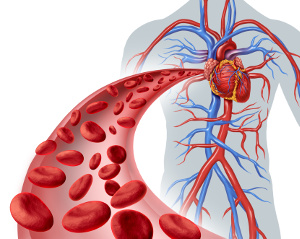
 Surprisingly many people suffer from hypertension without knowing it. That is a concealed threat, as elevated blood pressure is a common cause of stroke and premature death. However, people with hypertension who take folic acid along with their blood pressure-lowering medicine have a substantially lower risk of stroke.
Surprisingly many people suffer from hypertension without knowing it. That is a concealed threat, as elevated blood pressure is a common cause of stroke and premature death. However, people with hypertension who take folic acid along with their blood pressure-lowering medicine have a substantially lower risk of stroke.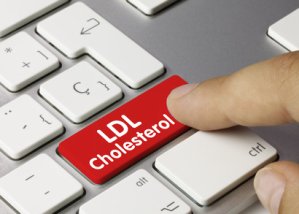 Medical science has claimed for decades that elevated cholesterol levels pose a health threat, especially if you have too much of the so-called “bad” cholesterol – or LDL (Low-Density Lipoprotein). However, a team of international experts is now arguing that this theory is exaggerated. In fact, the experts specifically advise against taking cholesterol-lowering statins. Meanwhile, science is focused on how to improve the safety of statins by combining them with supplements of coenzyme Q10.
Medical science has claimed for decades that elevated cholesterol levels pose a health threat, especially if you have too much of the so-called “bad” cholesterol – or LDL (Low-Density Lipoprotein). However, a team of international experts is now arguing that this theory is exaggerated. In fact, the experts specifically advise against taking cholesterol-lowering statins. Meanwhile, science is focused on how to improve the safety of statins by combining them with supplements of coenzyme Q10.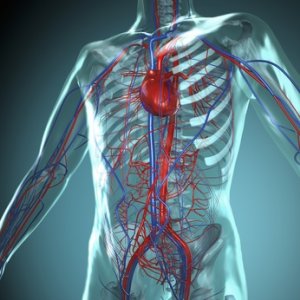 There is absolutely no reason not to consume eggs, meat, butter and other cholesterol-filled foods with a good conscience. American dietary guidelines have finally exonerated cholesterol, which happens to be an essential compound. Many scientists actually claim that atherosclerosis and cardiovascular disease are both a result of inflammation and lack of specific micronutrients. It is important to pay attention to factors that are known to promote inflammation in the body and take the necessary steps by looking after your circulatory system, making healthy lifestyle choices, and possibly even using supplements.
There is absolutely no reason not to consume eggs, meat, butter and other cholesterol-filled foods with a good conscience. American dietary guidelines have finally exonerated cholesterol, which happens to be an essential compound. Many scientists actually claim that atherosclerosis and cardiovascular disease are both a result of inflammation and lack of specific micronutrients. It is important to pay attention to factors that are known to promote inflammation in the body and take the necessary steps by looking after your circulatory system, making healthy lifestyle choices, and possibly even using supplements. Eat plenty of oily fish from clean oceans or take a fish oil supplement to make sure that you get enough of the essential omega-3 fatty acids. It lowers your risk of premature death by protecting you against atherosclerosis and a number of other diseases. In fact, blood levels of omega-3 tell a lot more than levels of cholesterol, according to a new study that is published in Journal of Clinical Lipidology.
Eat plenty of oily fish from clean oceans or take a fish oil supplement to make sure that you get enough of the essential omega-3 fatty acids. It lowers your risk of premature death by protecting you against atherosclerosis and a number of other diseases. In fact, blood levels of omega-3 tell a lot more than levels of cholesterol, according to a new study that is published in Journal of Clinical Lipidology.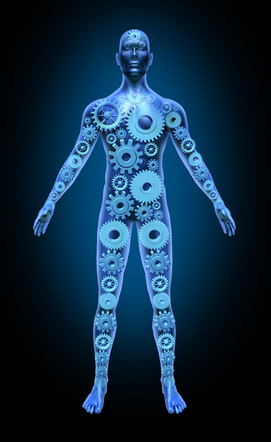 The cellular energy turnover takes place inside some small powerhouses called mitochondria. The condition of these tiny structures is determining for our energy levels and health. That is why it is vital that the mitochondria are adequately supplied with all the necessary nutrients. Q10 and magnesium play a particularly important role.
The cellular energy turnover takes place inside some small powerhouses called mitochondria. The condition of these tiny structures is determining for our energy levels and health. That is why it is vital that the mitochondria are adequately supplied with all the necessary nutrients. Q10 and magnesium play a particularly important role. shed some light on the longstanding mystery: Why do we see so many people treated with cholesterol-lowering statins experiencing muscle pain and in some cases, also impaired glucose tolerance. The answer is a lack of Q10!
shed some light on the longstanding mystery: Why do we see so many people treated with cholesterol-lowering statins experiencing muscle pain and in some cases, also impaired glucose tolerance. The answer is a lack of Q10!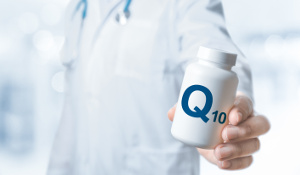
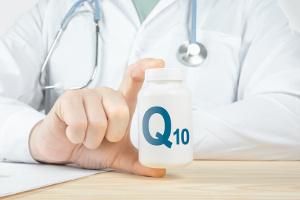
 Swedish scientists wrote medical history when they discovered that supplementation with Q10 and selenium could halve a person's risk of dying from cardiovascular disease. Now, a 10-year of the Swedish study shows that taking these two supplements even has a notable long-term effect on cardiac function and lifespan.
Swedish scientists wrote medical history when they discovered that supplementation with Q10 and selenium could halve a person's risk of dying from cardiovascular disease. Now, a 10-year of the Swedish study shows that taking these two supplements even has a notable long-term effect on cardiac function and lifespan.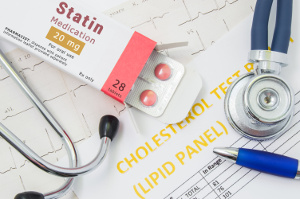 Cholesterol-lowering statins are among some of the most widely sold medical drugs. However, there is growing disagreement about their preventive effect on atherosclerosis and cardiovascular diseases, which are linked to many other factors than cholesterol levels alone. It turns out that statins also block the body’s production of vitamin K2, a nutrient that contributes to removing calcium from the bloodstream. A new study that is published in Medical Sciences concludes that atherosclerosis is more prevalent among statin users than among non-users, regardless of any cardiovascular diseases that have already been diagnosed. In other words, statins actually increase your risk of clogged-up arteries and that contradicts the traditional view. The new study supports earlier research, and it has been known for years that statins also block the endogenous synthesis of coenzyme Q10 and vitamin D, both of which are important for the heart and circulatory system.
Cholesterol-lowering statins are among some of the most widely sold medical drugs. However, there is growing disagreement about their preventive effect on atherosclerosis and cardiovascular diseases, which are linked to many other factors than cholesterol levels alone. It turns out that statins also block the body’s production of vitamin K2, a nutrient that contributes to removing calcium from the bloodstream. A new study that is published in Medical Sciences concludes that atherosclerosis is more prevalent among statin users than among non-users, regardless of any cardiovascular diseases that have already been diagnosed. In other words, statins actually increase your risk of clogged-up arteries and that contradicts the traditional view. The new study supports earlier research, and it has been known for years that statins also block the endogenous synthesis of coenzyme Q10 and vitamin D, both of which are important for the heart and circulatory system. "After about one week of taking the Q10 supplement I could feel a huge difference," says 23-year old Alan Piccini, who has been suffering from extreme fatigue and muscle aches ever since he was a child.
"After about one week of taking the Q10 supplement I could feel a huge difference," says 23-year old Alan Piccini, who has been suffering from extreme fatigue and muscle aches ever since he was a child. “Taking capsules with co-enzyme Q10 has freed me of the severe side effects of my cholesterol lowering medicine,” Mrs Franken explains.
“Taking capsules with co-enzyme Q10 has freed me of the severe side effects of my cholesterol lowering medicine,” Mrs Franken explains.